How AI from Amazon gradually captures the world
On August 31, 2012, four Amazon engineers filed an application for a large-scale patent, later called “Alexa”. It was about the technology of artificial intelligence, which responds to the human voice. Five years have passed, and now smart speakers running Alex can be found in tens of millions of American homes. In addition to Amazon, other tech nominations are being put in the promising direction. giants Google is already building its assistant in refrigerators and vacuum cleaners, and Microsoft announced the integration of Cortana into refrigerators, thermostats and toasters. It is expected that by the end of 2017, more than 4 billion electronic devices will be equipped with digital assistants.
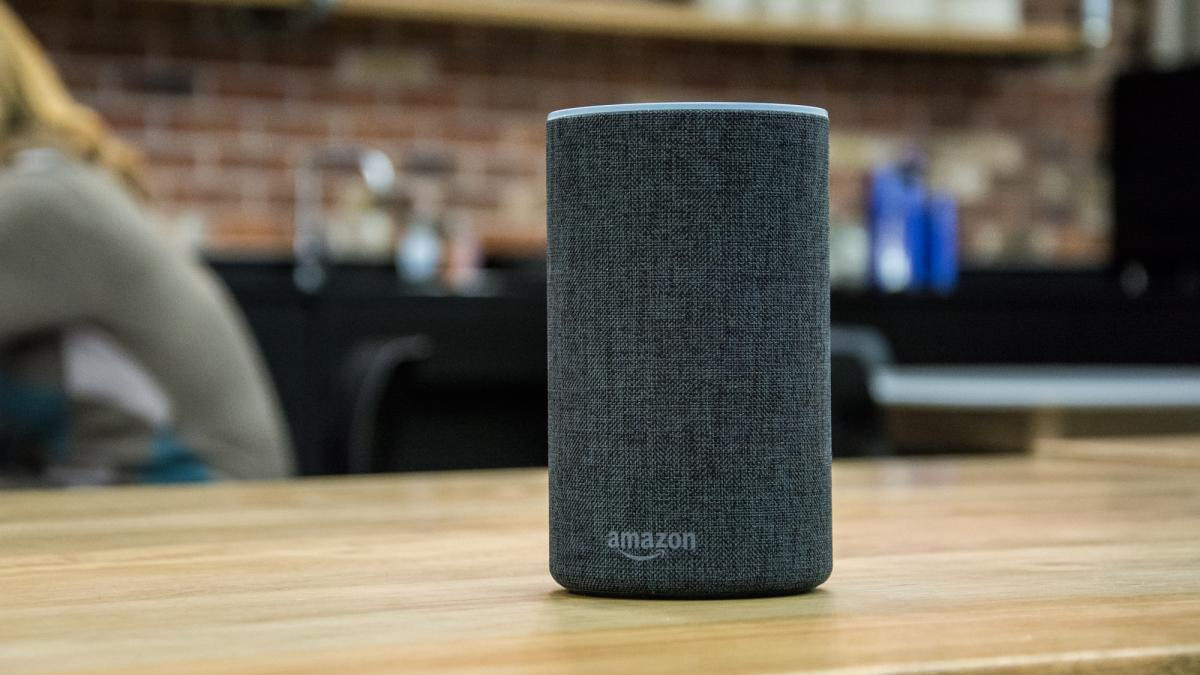
Accenture researchers, who polled 5,400 company directors from all over the world, concluded that in 7 years more than half of the interfaces would be screenless. Users will begin to choose a device based on the built-in artificial intelligence, and not the manufacturer's brand. Nine out of ten IT directors intend to invest in technology related to AI in the next 3 years. Alexa leads the market, and with Amazon’s support, the gap is widening. We at Pochtoy.com are looking at whether this technology has a chance to conquer the world, as it once happened with smartphones and the Internet.
What it is
The main platform for “Alexa” is the smart speakers Echo and Dot from Amazon, which turn off the lights, read books and order home goods. They collect data about their users and improve in the process, gaining new skills and contextually understanding better what the user wants from them. In America, these speakers are now the most booming. In 2016, their sales increased by 600%, now they are already in every tenth house. Amazon accounts for 88% of the market, with Google - 10%. Every fifth Amazon buyer in the US now orders their products through voice search. "Alex, buy ten size Nike sneakers." "Men's Nike Flex for running, order?" "Yes." Everything! And the man does not even have to dig into the computer or in the iPad.
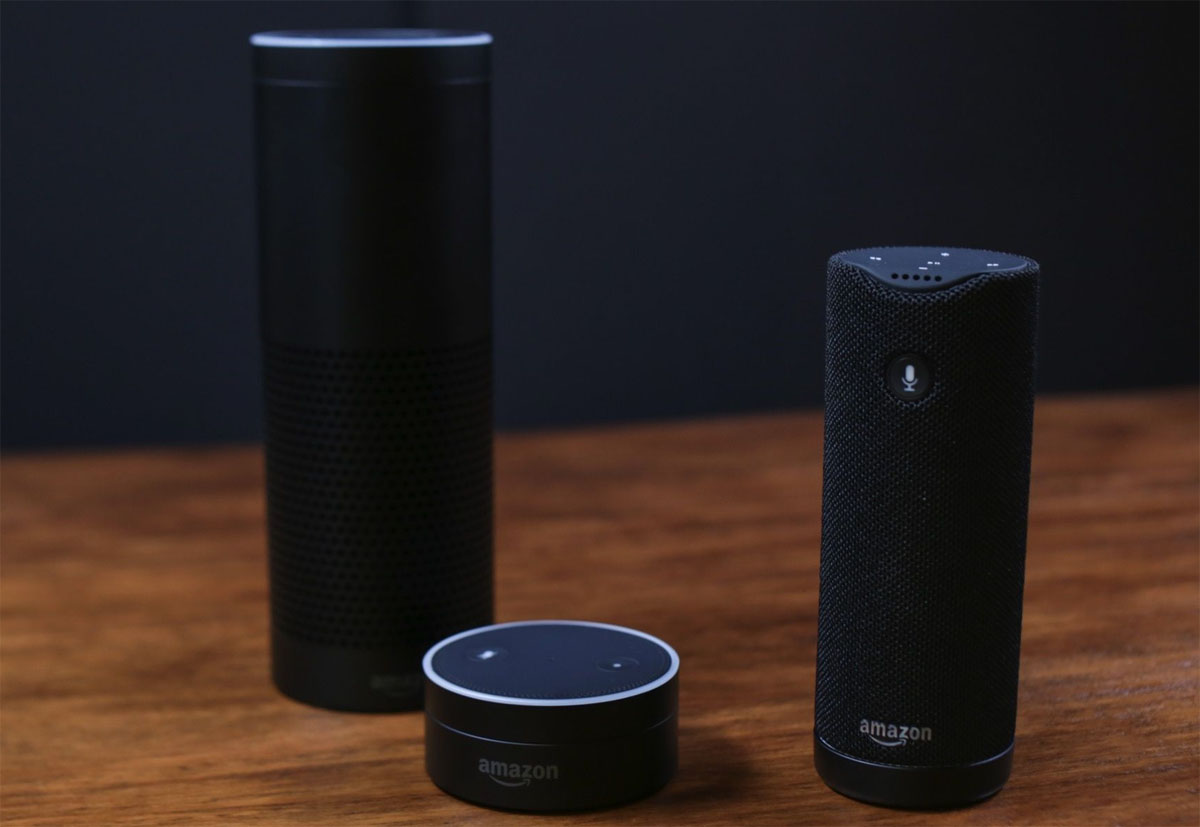
Now Alexa can:
- close the door, control the light, TV, air conditioning and other systems of the smart home;
- set a timer or calendar;
- tell the latest news;
- play rock, paper, scissors or toss a coin;
- buy goods, order pizza, take tickets to the cinema or on a plane;
- read, translate units of measure;
- play quiz games with you;
- count how much time is left before the New Year;
- find your smartphone in the apartment;
- say how much gas is left in the car, and turn on the engine in advance if you are going to go out (for now only for BMW);
- read audiobooks or lullabies;
- order / cancel Uber and Lyft;
- calculate how many calories in your food;
- to answer questions (depending on the context - or with humor, or in the style of "Wikipedia").
Testing 50 Alex Skills
Independent developers create their extensions for the voice assistant (Amazon calls them "skills"). They are similar to applications in iOS or Android, only responsive to voice. If Microsoft Cortana has 65 of them, and Google Assistant has 378, then the number of Alexa skills exceeds 15,000. Amazon encourages developers to create new devices and extensions for its platform. Skill creators receive money depending on the frequency with which users call them.
Fears Ilona Mask
Amazon does develop artificial intelligence for Alex. The idea is for the device to react better to the way people talk and think, understand the accent of their owner, pick up his desires from a half-word. For example, if it is 8 o'clock in the evening, and the person says “Alex, come on ...”, the robot can already begin to search for the man’s favorite products in a nearby restaurant. Or, following the balance of substances in the last purchased dishes, order what is now the most useful. Or - to maintain a discussion with a man who is now lonely.
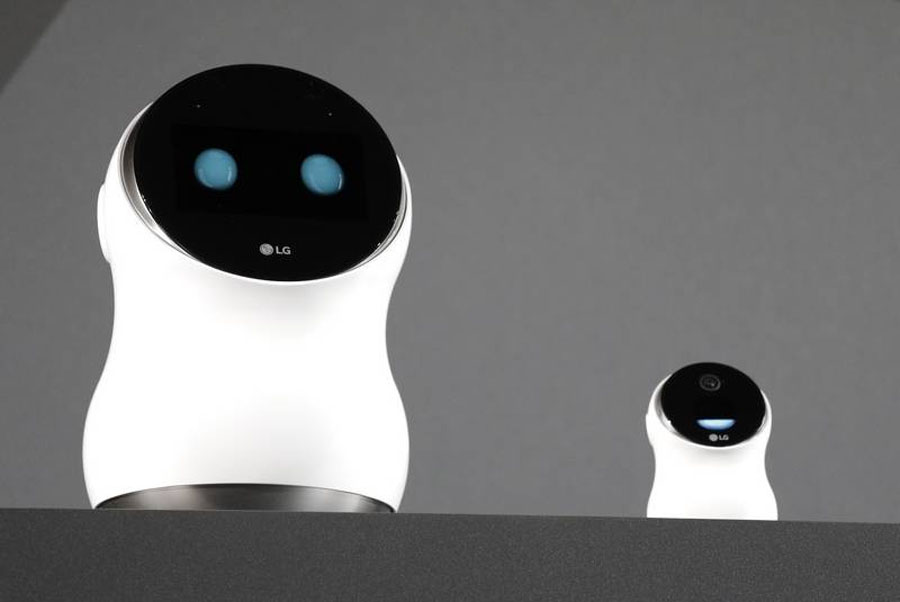
Thousands of Amazon employees, including from branches in Sunnyvale, Seattle and Cambridge, are working on the development of Aleksy AI. Creating an effective speech recognition technology is a titanic work. Over this work for more than 20 years, but a major advancement began only five years ago. If before scientists tried to make the robot understand the exact meaning of the phrases, now the devices work by analyzing imperfect coincidences and conjectures about what the person really wanted to say. The key is analysis of a huge amount of data, and training based on previous errors. Users of “Alex” who just unpacked the device regularly receive incorrect answers. But the more time a speaker spends with a host, the more she adjusts to it and the more intelligent she becomes.
This approach to machine learning has proven to be very effective, but needs a lot of data to analyze. Fortunately, thanks to the growing popularity of Echo and Dot, researchers now have access to millions of examples of interaction between the robot and humans. Now, after five years of training, “Alex” is no longer tied to specific phrases, it does not decode the expression, it is enough context. If the user's suggestion has probabilistic pointers to negation, it will cancel the last operation. If you asked for the date of the last U2 concert, asked to play a song out of it, and then said “When will the next one be?”, She will understand that you are still talking about the concert of the musical group.
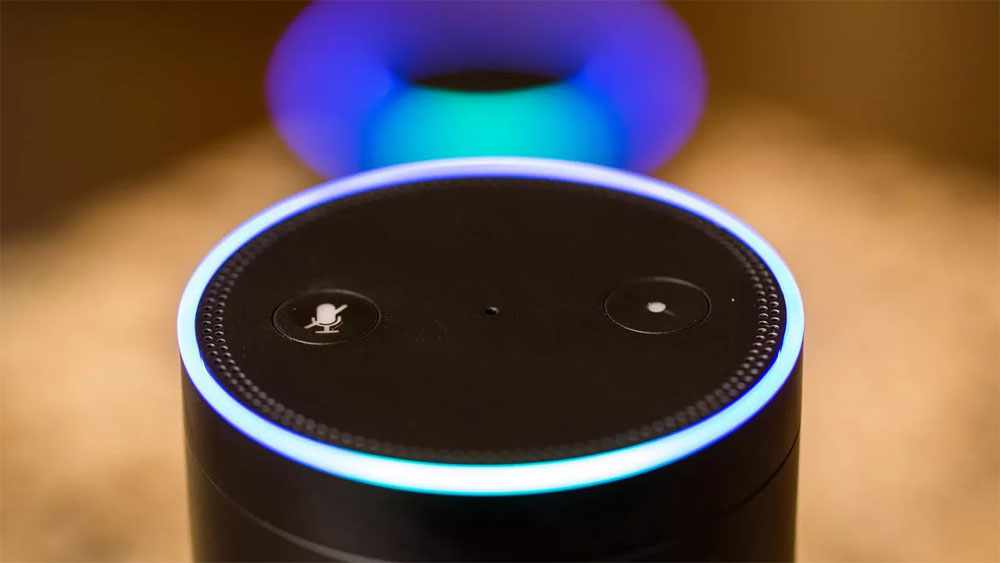
Listening well is only half the battle. Voice assistant also must be able to correctly respond. It is desirable - with all the intonations inherent in man. Traditionally, "computer" speech was synthesized from scraps of a human voice recording. The sound was pretty natural, but such a robot could not convey the irony, emotion, playfulness or anger. In order for Alexa to have emotions, she could whisper and move to higher tones, she is trained on the voices of audiobook narrators. Fortunately, Amazon owns their most famous vendor, Audible, and it has access to an extensive library that other voice assistants developers cannot get.
The next most important task is to teach the AI to conduct a dialogue. To help find a solution, Amazon announced a competition among the 12 best universities in the world. The team that created the best bot capable of maintaining a 20-minute conversation with a person will receive 500 thousand dollars and a chance to work in a unit developing Alex.
New features
As Amazon says, it sold "tens of millions" of Echo, Dot and other Alexa devices from entering the market in 2014. But technology is still only at the initial stage of its development. New features are added every couple of weeks. For example, previously it was possible to say “Alex, what's in the news?” So that the robot would tell the latest events from the topics previously selected by the user. And now the same technology works for music. If you do not want to be overloaded with negative, you can say "Alex, what is in music today?". And the device tells about concerts, new songs, ratings of performers, and all this with reference to the taste and location of the person.

In the same piggy bank - the first "smart piano" under the control of a voice assistant. Yamaha released it in early September so that the AI could play melodies to you. Previously, “Alex” was criticized for being absent on smartphones, unlike Apple's Siri and Google Assistant. Now she has appeared on Huawei Mate 9 and HTC U11. It can also be called up in the new Bragi Dash wireless headset - so that you can, without stopping, call Uber or find a suitable cafe to have a snack.
Recently, the Chinese showed the first living, moving robot with Alexa, which can drive around the house and follow the commands of a person. It is expected that it will be popular not only among parents, but among children. It is easier and more useful for babies to talk, giving commands, than to click icons on the screen. The voice assistant already knows how to teach children the alphabet, and recently, “Alex, tell the story” was added to the number of teams. The assistant will read one of hundreds of thousands of professionally voiced fairy tales from her library for the kids. Stories are designed for children from 5 to 12 years.
Probably the most impressive Alexa device in recent months has been released by the robot company Bionik Laboratories. She built a helper in the exoskeleton. A paralyzed person can give voice commands to control the device, such as “Alex, I am ready to stand,” “Alex, go forward,” or “Alex, I sit down.” Now the device is undergoing clinical trials, but most doctors are confident that for people with disabilities an assistant will be indispensable.
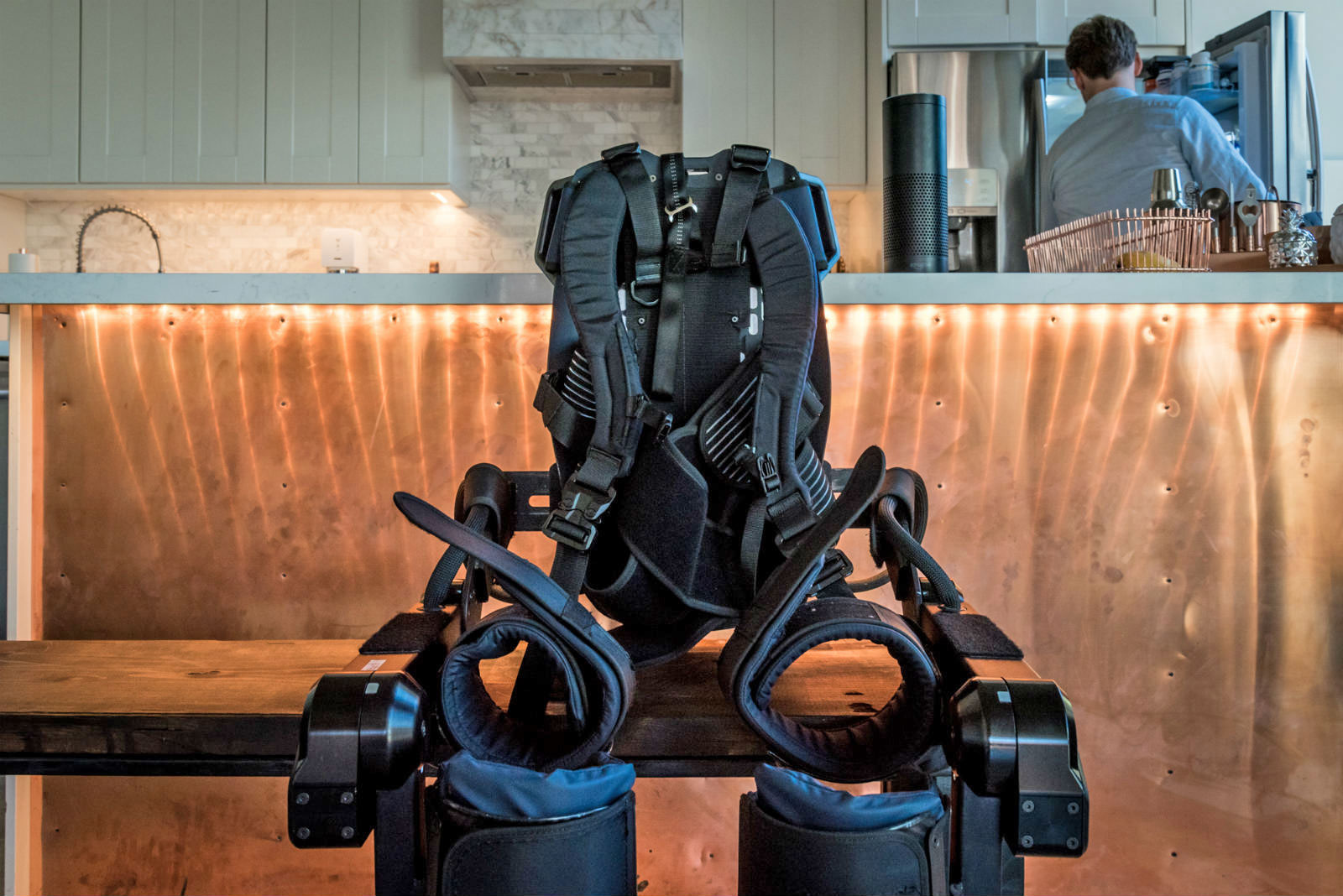
Now on Amazon.com sold about 300 products with Alexa support. There are about 4,000 of them on the market. The most popular requests to the voice assistant are about music, weather, news, traffic jams and games. And this spring a new leader appeared: the first in popularity was the phrase “Alex, help me relax”. At such a request, the system includes quiet, quiet sounds, like the rustling of an ox on the beach, the sound of wheels on a night train, and the chirping of birds. They can play for hours helping a person fall asleep.
Money issue
The global market for smart home equipment, where Alexa feels so comfortable, has been growing for 3 years in a row. Last year, these devices were bought for $ 76 billion, in this, according to forecasts , there will be at least $ 86 billion. Basically, they are taken by residents of the United States and Europe: they account for 90% of all "smart homes". In Russia, the demand for this technology is still very modest: even in 2013, before the crisis, the turnover of such systems was only $ 130 million. People are simply not aware of them, and Amazon and Google are not going to start their devices here. But the voice assistant, built-in smartphones and smart speakers, in Russia creates a "Yandex" . His assistant is not called “Alex”, but “Alice”. The company hopes that it will have time to gain popularity before the Western giants add support for the Russian language to their devices. True, for the time being, Alice is slightly below its competitor. German Gref, for example, called her " very stupid "
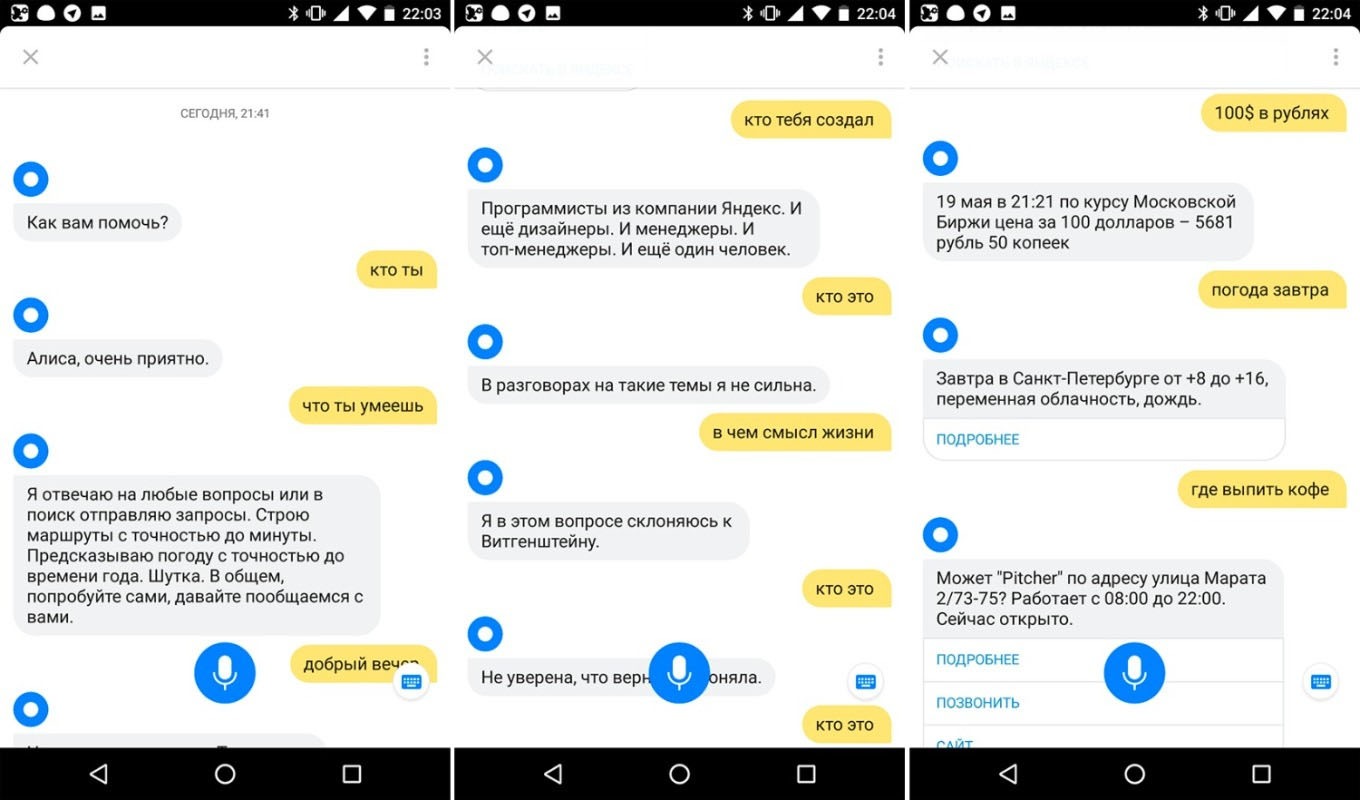
Communication with Alice in the smartphone
Amazon is not very worried about emerging alternatives. It is expected that by 2020, Alexa will bring the company at least $ 10 billion. And this is the most modest estimate. So far, the company does not receive income from manufacturers producing smart bulbs, refrigerators and other devices on the Alexa platform. Amazon itself sells only smart speakers - from Dot for $ 50 to Echo with a display for $ 230, but it only loses money for them. Every Amazon device is sold at a loss. It has the same strategy as the Kindle reader. The idea is that later on users will be more inclined to order products on Amazon.com, and the device will pay for itself within a few years. With Kindle, people took books, and with Alex, any items from a long list of products in the store. When requesting a purchase, the robot first checks whether the product is on the Amazon site itself. And if you ask, for example, “Alex, what is the best tablet now?”, The assistant, half in jest, would recommend taking the same Kindle Fire. Potentially, by such inquiries, it will be possible to sell contextual advertising, like Google’s, if smart devices become firmly enough in everyday use.
Do you think Alexa has a chance to conquer the world? Or will people play enough - and the technology will become obsolete?
PS
The cheapest way to order in Amazon is through Pochtoy.com . We deliver any purchases from America to Russia for as low as $ 8.99 per pound. And readers who register via this link and enter the GEEKTIMES code will receive an additional $ 7 to their account to pay for goods from the United States.
All Articles